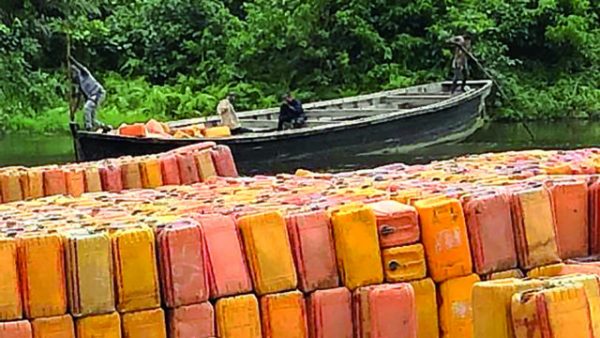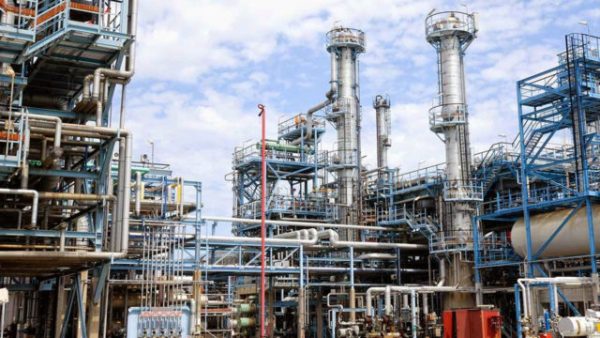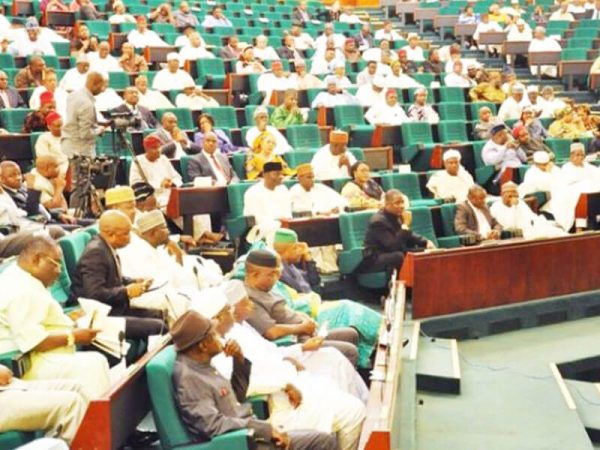Nigeria subsidises petrol consumption for other African countries
 The massive petrol subsidy currently being reported by the Nigerian National Petroleum Corporation (NNPC), may be a reflection of petrol consumption not only by Nigerians, but also those used by neighbouring African countries.
The massive petrol subsidy currently being reported by the Nigerian National Petroleum Corporation (NNPC), may be a reflection of petrol consumption not only by Nigerians, but also those used by neighbouring African countries.
This development is being justified by the sudden appreciation in daily petrol consumption for Nigeria from 35 million litres to 60 million litres.
However, some oil marketers, who spoke to media, maintained that the 60 million litres daily consumption of petrol being quoted was not possible for Nigeria’s current population and potential petrol users.
They described the figure as over bloated, saying the sudden rise to 60 million litres daily is questionable, and should be investigated.
This is just as regulatory agencies including, the Petroleum Products Pricing Regulatory Agency (PPPRA), National Bureau of Statistics (NBS), the Petroleum Equalisation Fund (PEF), have opened investigations into the sudden surge in consumption levels.
Already, a total of N1.4trillion is now being spent annually by NNPC as subsidy on premium motor spirit (PMS) also called petrol, the Federal Government recently said, yet there is no budgetary provision for subsidy in the 2018 budget, and has not been for some years now.
Although it described the amount as under-recovery, the government said the national oil firm had been shouldering the huge financial burden, because it is the country’s supplier of last resort when it comes to the provision of petroleum products.
To cater for the subsidies, the NNPC currently withdraws three major cost elements from the aggregate revenue from crude sales before making available the monthly statutory allocation for the three tiers of government.
The cost elements are: cost of crude production, subsidy on petrol, and the Corporation’s operating expenses.
The Executive Secretary, Depot and Petroleum Products Marketers Association (DAPPMA), Femi Adewole, told The Guardian that owing to widespread concern over the 60 million litres, a study being coordinated by the Ministry of Petroleum Resources, to ascertain the true consumption of petrol by Nigerians, is ongoing.
According to Adewole, the study is being carried out in collaboration with the Petroleum Products Pricing Regulatory Agency (PPPRA), the National Bureau of Statistics (NBS), and the Petroleum Equalisation Fund (PEF), among others.
He said: “This is in effort to determine what we actually consume daily. “But for this to be achieved, it is crucial that all retail points in the country must provide reports on what they sold in one year. A database should be set up for this purpose.
“However, I am afraid we don’t have this structure yet. There are about 20,000 to 25,000 retail points in Nigeria today. It is unfortunate we don’t have a database for all of them in terms of product management.”
Responding to media’s enquiry, Spokesperson for NNPC, Ndu Ughamadu, confirmed that large quantities of both imported and locally-refined petroleum products were being smuggled to neighbouring countries.
He said: “In fact, in Ghana, there is a special name and local market for these smuggled products particularly Premium Motor Spirit (petrol).
“A reason for the smuggling is the huge attractive and sumptuous price differential between what petrol is sold in the Nigerian open market vis-à-vis those of the neighbouring countries; the wider the gaps, the more the smuggling and price distortions.”
Also condemning the huge subsidy burden, an independent marketer and Managing Director, Petrocam Trading Nigeria Limited, Patrick Ilo, described the incidence as unwarranted.
Ilo said: “The country is losing close to about N1.2 billion everyday subsidising fuel, and it is like a free gift to marketers. About seven nations around Nigeria are not subsidising petrol.
“The product is being taken outside Nigeria, and they are the ones benefitting. There are over 2,700 filling stations around the borders of Nigeria providing these leakages. This kind of money we use in subsidising the product should be used to build infrastructure and some other things in the country.”
A major marketer also told The Guardian in confidence that the 60 million litres far exceeds what Nigerian can consume per day.
By his estimation, 25 million litres daily could be “justifiable” against the 35 million previously peddled by government.
“This is a case of gross abuse on the side of the authorities saddled with the responsibility to bring in petrol into the country. It is unfortunate,” he lamented.
He maintained that a large chuck of the daily subsidy the NNPC claims to be paying on petrol was obviously subsidies on petrol consumed by neighbouring countries around Nigeria.







